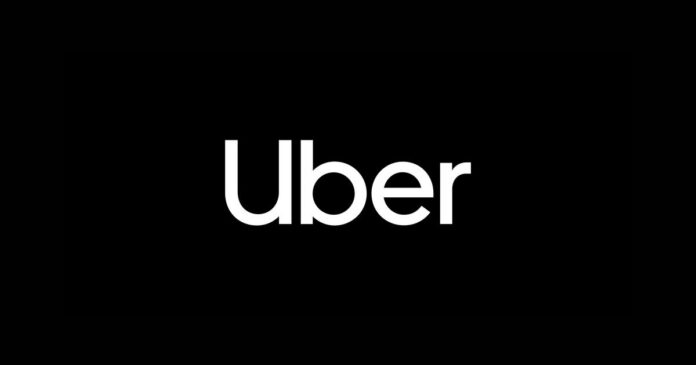SWOT Analysis of UBER
In Hong Kong the Uber need to adopt to the state rules and regulations.
Cooper made few suggestions, as a result of the SWOT analysis of Uber.
| Strength | Cooper’s Claim By 2015, the sharing economy had emerged as a serious economic model; five key sectors using this model were travel, car sharing, finance, staffing, and music and video streaming. A Price water house Coopers report projected that these five key sharing sectors would likely increase global revenues from $15 billion in 2015 to $335billion by 2025. | Reason Cooper’s claim generates a valid evidence of the strength of the business facility of Uber to generate the revenues. The strategically economic model is planned on long term basis for the company.Variety of cars ranging from lowest to the best and highest mode of transportationLess cost on few variety of types of car and facilitates the customers through promotions and discount packages |
| Weaknesses | Uber had posted bail to releasethe drivers and employees, butthe situation was stilldeveloping. The drivers wouldbe due in court in several monthson charges of operating withoutcar permits. | Lack of following the regulations of the state. Accusation of disobeying the laws in its initial stages.The variety of the transportation modes are not for all regions.The pricing is raised in case of rush hours or if the drivers are not availableUnique pricing model due to unstable rates in rush hours |
| Opportunities | The Internet transformed thesharing economy and enabled itto grow significantly in a shortperiod of time within multiplesectors. By enabling more sustainableconsumption, the sharing economy was compatible with economic growth, while simultaneously diminishing environmental impacts throughreduced waste and efficient useof existing resources at the levelof an individual consumer.The sharing economy emerged as a response to the economicdownturn and instability thatfollowed the 2008 financialcrisis, resulting in networking and pooling of resources. | Advanced reputation through sharing the economy. Use of latest technology in the maximization of the services in short span of time to rise the state from drowning into the pool of crisis by utilizing recourses in working for economic advancement.Splitting the costs with the customers through a clear image before them.Facilities of taxis and chauffeurs with the comfortable travelling |
| Threats | Hong Kong was a new marketfor Uber, and its success orfailure there could define thecompany’s next move, not onlyin Asia, but globally.Uber was sued several times,prompting it to provide more handicap-accessible vehicles. Governmental regulation or self-regulation by the company could therefore positively ornegatively affect the potentialmarket share of sharing economycompanies. | To compete in the new market the steps should be taken with cautious approach. Focus should be to follow the standards demanded by the government which otherwise have full right to dismiss or charge the company.Regulatory Barriers, which are the biggest threats to the enterprise in the way of its developmentThe brand image is spoiled if the standards of the government are not met.Few license requirements offers the highest payments to the drivers. |
Ansoff Matrix
According to the Ansoff Matrix, the development in the existing market of Hong Kong through its products and services can be witnessed as follows:
- Market development
- Low costs
A major Uber advantage is of lower cost as compared to taxis although the taxi industry still maintained aleading market share.
- Safe and secure
As a move to better compete with ride-sharing services like Uber, Zipcar introduced “One>Way” service inlate 2014, which allowed users to pick up a car from one location and return it to another.
- Market Penetration
- New strategy
Uber also boasted clear pricing, direct charges to a credit card for convenient payment method, and theopportunity to split a fare with other riders.
- Package facility
Uber offered a variety of car types to cater to different demands as well as surge pricing, a demand- responsepricing model through which rates increased at times of peak demand, such as during rush hour.
- Diversification
- Money raising Project
A project with aim for the expansion through the services centered on raising money for expansion projectsand then implementing city-by-city launches in target areas
- Delivery Services
Fast secure and efficient system of delivery services in the selected geographical locations by latest modes of transportations
- Product development
Service offering
- Uber health
Through which individuals could order a nurse to administer a flu shot
- Uber assist
Designed for senior citizens or people with disabilities requiring special assistance
- Uber rush
A delivery service
- Helicopter
Use of finest resources to benefit the customers
- Motorcycles
Accessibility of the services in the selected geographical regions
The industry life cycle of Uber can be viewed clearly,
- Startup
The use of apps on smartphones and social media was an effective method for creating awareness.
- Growth
The cultural shift assisted in the brand marketing leading towards development.
- Shakeout
Low pricing and facility to book the service beforehand. Services offered for handicaps and disabled.
- Maturity
Trust of people as it provides worthy services and products fair and transparent means of communication.
- Decline/rebirth
The claim for underusing resources and responsible for destroying carbon prints.
PESTLE Analysis of UBER
The Macro Environment Analysis shows the following results,
- Regulations
No driver will ride in the state without a permit or a license. Demands for more vehicles for handicaps making the company to evaluate its competitiveness.
- Economic
Less money and reduced time with better services, adding up in the state financial conditions.
- Competitive
Social security for the passenger’s trust of the customers as the payment methods and locations and ride duration are all available. Effective use of technology in tracking system.
- Social
Health and social services for the handicaps and senior citizens.
- Technological
App for smartphones and easy access to the drivers. Fast tracking system and innovations for the customers.
- Cultural
Car facility easy to access for all making them independent. Easy captivation for the youth.


